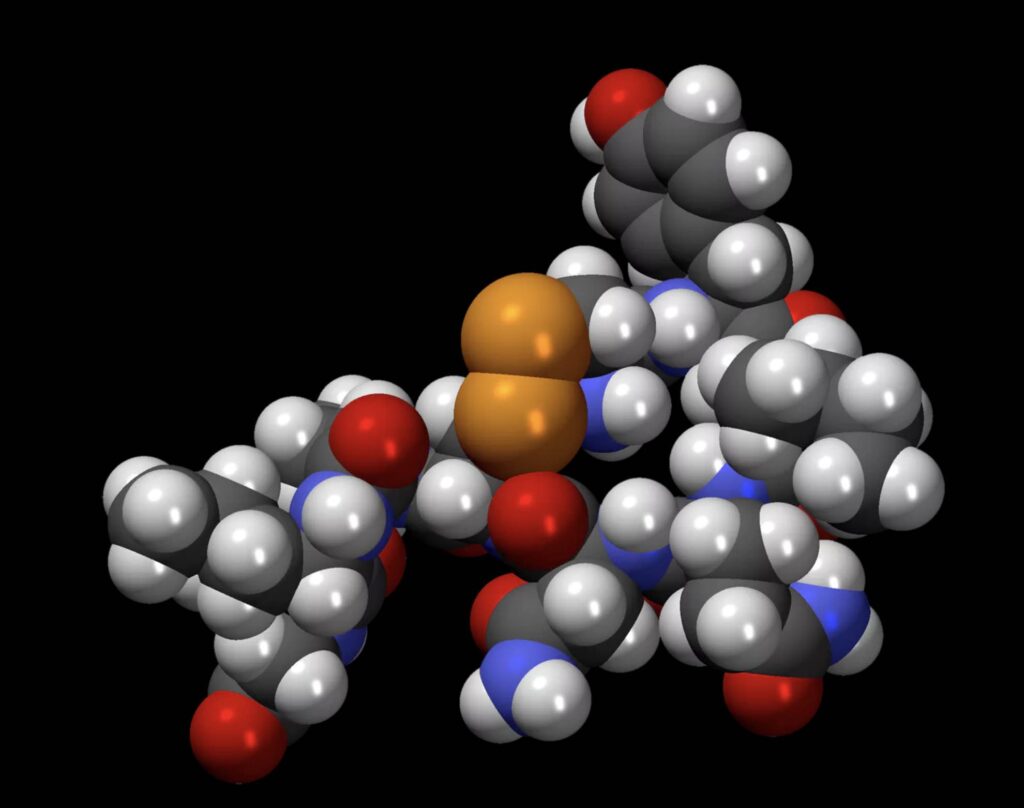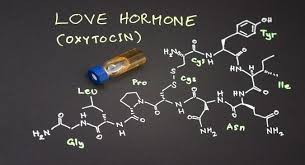 It has long been known in scientific circles that oxytocin promotes bonding between people. A study by the Neurorehabilitation Research Group of KU Leuven in Belgium has found that the external administration of oxytocin, the so-called ‘cuddle hormone’ – or ‘hug hormone’ as I prefer to call it – stimulates adult males with autism to form close emotional bonds with others. And the added bonus is that the administration of the substance also has a positive effect in the long termtoo.
It has long been known in scientific circles that oxytocin promotes bonding between people. A study by the Neurorehabilitation Research Group of KU Leuven in Belgium has found that the external administration of oxytocin, the so-called ‘cuddle hormone’ – or ‘hug hormone’ as I prefer to call it – stimulates adult males with autism to form close emotional bonds with others. And the added bonus is that the administration of the substance also has a positive effect in the long termtoo.
In the first phase, the scientists – led by Professor Kaat Alaerts – looked at the amount of oxytocin produced by the forty male test subjects with autism. The test subjects also completed a number of questionnaires. An analysis of the information showed an inverse relationship between the amount of oxytocin in the saliva and self-reported attachment problems. In other words, the less oxytocin the men produced themselves, the greater the attachment problems.
In a second phase, the researchers investigated possible long-term effects of the externally administered oxytocin. This test yielded remarkable results.
Also long lasting effects
 In this second phase, the group of 40 test persons was divided into a test group and a control group. The test group received an oxytocin nasal spray for four weeks; the control group took a placebo [a substitute without active ingredients] for four weeks. The researchers also asked the test subjects to complete a questionnaire four times over the course of a year. They used this information to investigate the influence of externally administered oxytocin on the symptoms of autism.
In this second phase, the group of 40 test persons was divided into a test group and a control group. The test group received an oxytocin nasal spray for four weeks; the control group took a placebo [a substitute without active ingredients] for four weeks. The researchers also asked the test subjects to complete a questionnaire four times over the course of a year. They used this information to investigate the influence of externally administered oxytocin on the symptoms of autism.
There appeared to be no difference between the test group and the control group in terms of social interaction. However, in terms of repetitive behaviour – such as a need for routines – and attachment, the results turned out to be significant. The subjects in the test group – who received the oxytocin nasal spray -reported much less repetitive behaviour and also indicated that they had fewer problems establishing close relationships with others. In fact, these volunteers experienced positive effects up to a year later!
This study therefore shows for the first time the long-term effects of repeated administration of oxytocin in people with autism.
Can this be applied in practice?
Since oxytocin is already being used in medicine, you might think that it could be used fairly quickly for attachment problems or for reducing repetitive behaviours in people with autism. However, these results are the result of a first pilot study. A lot of additional research is needed before oxytocin can be used for the treatment of people with autism.
 The scientists only selected male test subjects for this study and there were several reasons for this. Not only is autism much more common in men, women’s hormonal cycles can also affect test results.
The scientists only selected male test subjects for this study and there were several reasons for this. Not only is autism much more common in men, women’s hormonal cycles can also affect test results.
In addition, oxytocin is currently already being used as a means of initiating labor or breastfeeding in pregnant women or women who have recently given birth. So there are more factors to consider with female test subjects.
REFERENCES:
Alaerts, K., et al., Amygdala–Hippocampal Connectivity Is Associated With Endogenous Levels of Oxytocin and Can Be Altered by Exogenously Administered Oxytocin in Adults With Autism. Biological Psychiatry: Cognitive Neuroscience and Neuroimaging. 2019, Volume 4, Issue 7, Pages 655-663.
https://doi.org/10.1016/j.bpsc.2019.01.008.
Bernaerts, S., Boets, B., Bosmans, G. et al. Behavioral effects of multiple-dose oxytocin treatment in autism: a randomized, placebo-controlled trial with long-term follow-up. Molecular Autism. 2020, Volume 11, Issue 6.
https://doi.org/10.1186/s13229-020-0313-1
